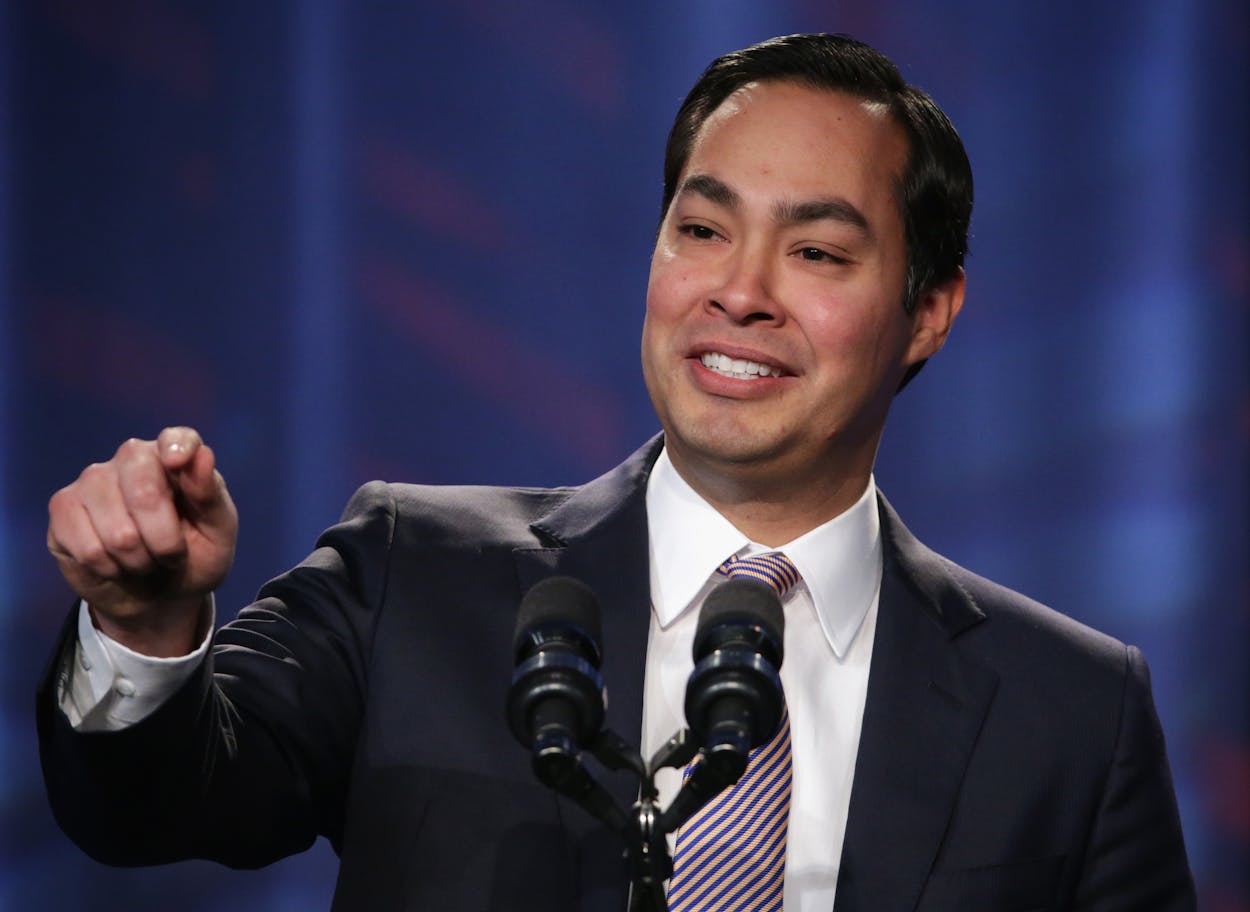“As Democrats, we’re always like cats in a parade,” observed one young Texas partisan last Friday evening, during the state convention in San Antonio. She was referring to proceedings on the floor of the convention itself: that evening’s session was already an hour behind schedule, and the crowd was dwindling at a steady clip, as attendees left the cavernous Alamodome in search of sustenance. But by the time the convention adjourned, late the next day, the comment seemed more like a warning.
Texas Democrats had a perfectly successful convention this year. They passed a party platform, on a unanimous vote. They elected delegates who will represent the state at the national party convention, which will be held in Philadelphia in July. They avoided internal rancor; Bernie Sanders has yet to officially concede the Democratic nomination to Hillary Clinton, and a small but vocal contingent of his supporters expressed some discontent over that in San Antonio. But Clinton did win the state primary, in March, by a 32-point margin, and so although most of the Democratic officials who spoke at the convention commended Sanders, few were cowed by the occasional outburst from the crowd: “I like your energy,” said Eddie Bernice Johnson, the Congresswoman from Dallas, on Saturday afternoon, before adding a gentle rebuke: “No matter how hard you holla here, it doesn’t cast a vote.”
Still, under the circumstances, the convention was a relatively subdued affair. We all know that Texas Democrats have been out of power for two decades; we all remember the bloodbath they suffered in 2014, after an election cycle that began with unusually high hopes; we all know they’re not going to retake control of the Legislature this year. At the same time, we know that Donald Trump is the presumptive Republican nominee for president. His candidacy has cast a serious pall over Republican prospects of retaking the White House, or the Senate, in November. Most of the Democratic officials who spoke at the convention realized that. Almost every speaker made reference to Trump, and drew parallels between him and various Texas officials in the party he now leads—with Dan Patrick, the lieutenant governor, being referenced more often than most.
Beyond that, though, Trump’s candidacy is absolutely catastrophic for the Texas GOP in particular. On Friday afternoon, for example, he appeared in San Antonio for a fundraiser. Audio of the event, subsequently acquired by the Texas Tribune, revealed that donors had taken the opportunity to attempt to intercede with Trump on issues like NAFTA, and immigration reform; he proceeded to ignore their efforts at his rally later that evening, in The Woodlands. On Saturday afternoon, I happened to run into a Republican state legislator in the lobby of my hotel, whose expression was further proof of something that’s been evident for a while. With a few exceptions, like Patrick, Texas Republicans don’t even want their names associated with that of their party’s leader.
I can’t imagine why Texas Democrats wouldn’t take every opportunity they can, over the next five months, to point it out. Julián Castro, who eventually gave the keynote speech on Friday evening, was among the few Democrats to explicitly say that he hopes to see Clinton win the state’s electoral votes in November. It sure seems to me that they might at least try. This might be “fact-challenged optimism,” as the Austin American Statesman’s Ken Herman puts it, but what’s the worst-case scenario? By competing to win they might, at least, narrow the margin between themselves and the Republicans, and pick up a few seats in the Texas Legislature. Or they can preemptively declare defeat, and wait for the once-in-a-lifetime opportunity that Trump represents to ever come around again.







